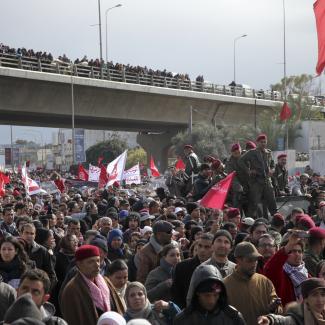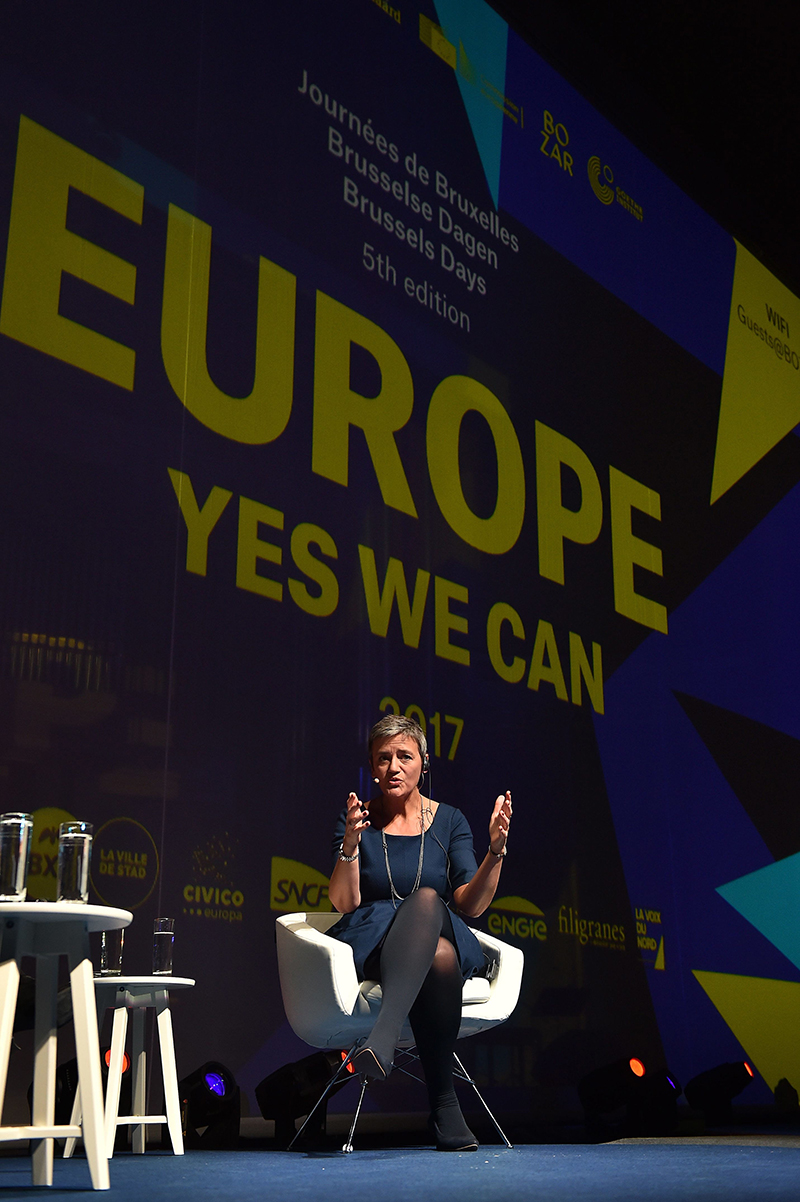Soft Power
Last hope
By Markus Loewe

Syria is being torn by civil war. In Egypt, a military-backed government is suppressing critics, the opposition in general and the Muslim Brothers in particular. Libya is fragmenting into many tiny fiefdoms that are run by ethnic or religious groups. The Arab spring seems to be over. The country, where everything started, however, can still make a difference.
Tunisia may either become a democracy or a dictatorship. Should democracy prevail, that would prove its compatibility with Islam even in the Arab world. Should the country fall victim to some kind of authoritarianism, however, people will lack the courage for another democratic uprising in the Arab world for a long time.
As Europe has an interest in democratic governance on all shores of the Mediterranean, the EU should do everything to promote it in Tunisia. It would certainly be wrong to interfere in domestic power struggles, however, as Tunisians tend to be quite sensitive about European dominance. Support for specific parties could therefore make them rally around Islamist leaders.
For a majority of Tunisians to want democracy in the long run, democracy must eventually pay in economic and social terms. Many people have seen their standards of life deteriorate since Ben Ali was toppled almost three years ago. A fast economic upturn is impossible, but the nation needs a prospect of long-term improvements.
After the end of the Cold War, eastern Europe's transition to democracy and open markets was surprisingly smooth and peaceful, even though living standards had initially deteriorated for many people. An important factor was that the people had a reason to expect better times after accession to the EU.
There are good reasons for similarly promising EU membership to Tunisia today. The country is small, so it could easily be integrated into the EU. The economic advantages would probably help to reign in many sceptics among Islamist forces. In any case, the fundamentalists would struggle to convince Tunisians of foregoing the opportunity of a better future in the EU. Obviously, accession would have to depend on democracy being firmly established first.
Tunisia would serve as a regional beacon once it becomes a democratic nation. The idea of free elections would never die again in the Arab world. At the same time, the EU would prove that its founding principles are indeed the rule of law and representative government, rather than religious affiliations. Unfortunately, such proof is very hard to deliver for two reasons:
- Other Arab countries would demand accession as soon as they take the first steps towards democracy. One of the first would be Morocco, a country that has already been a candidate for membership once. The truth, however, is that it is still run by a king who personally owns more than a quarter of private-sector businesses and has the power to reverse all liberalising reforms of recent years.
- There is no consensus in Europe on the rule of law and representative government being the foundations of the EU. Conservative leaders like to emphasise the continent's “Christian-Jewish” identity even though Christians are no longer the majority in several member nations and European history shows that Christians and Jews were kept apart for many centuries.
- It is certainly impossible to convince the public in all EU nations of the merits of Tunisian membership at this point. It would make sense, however, to offer the country a privileged partnership. The EU should open its single market to Tunisian goods as fast as possible. Yes, a trade agreement is already in place, but it exempts many services and agricultural goods. Some vegetables, for instance, may only be imported from Tunisia in seasons when they are not being harvested anywhere in Europe.
Granting Tunisia comprehensive access to the European market would boost Tunisia's economy and start growth where it is needed most: in labour-intensive sectors that create jobs and generate incomes for disadvantaged people. If the EU wants to gain the kind of soft power it enjoyed in eastern Europe after the fall of the Berlin wall, it must speed up its trade negotiations with Tunisia that have been going on for more than a year.
Markus Loewe is an economist at the German Development Institute. markus.loewe@die-gdi.de











